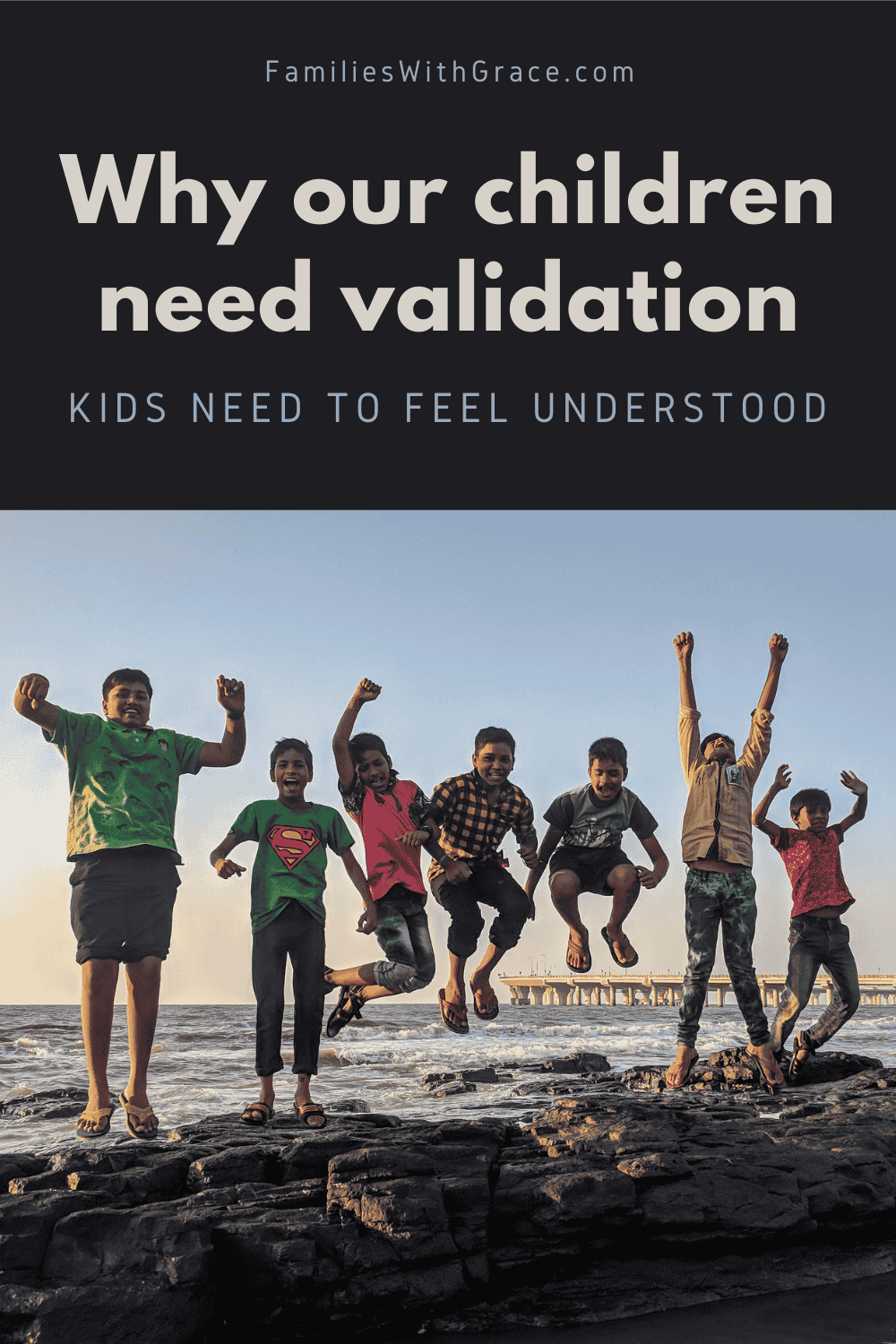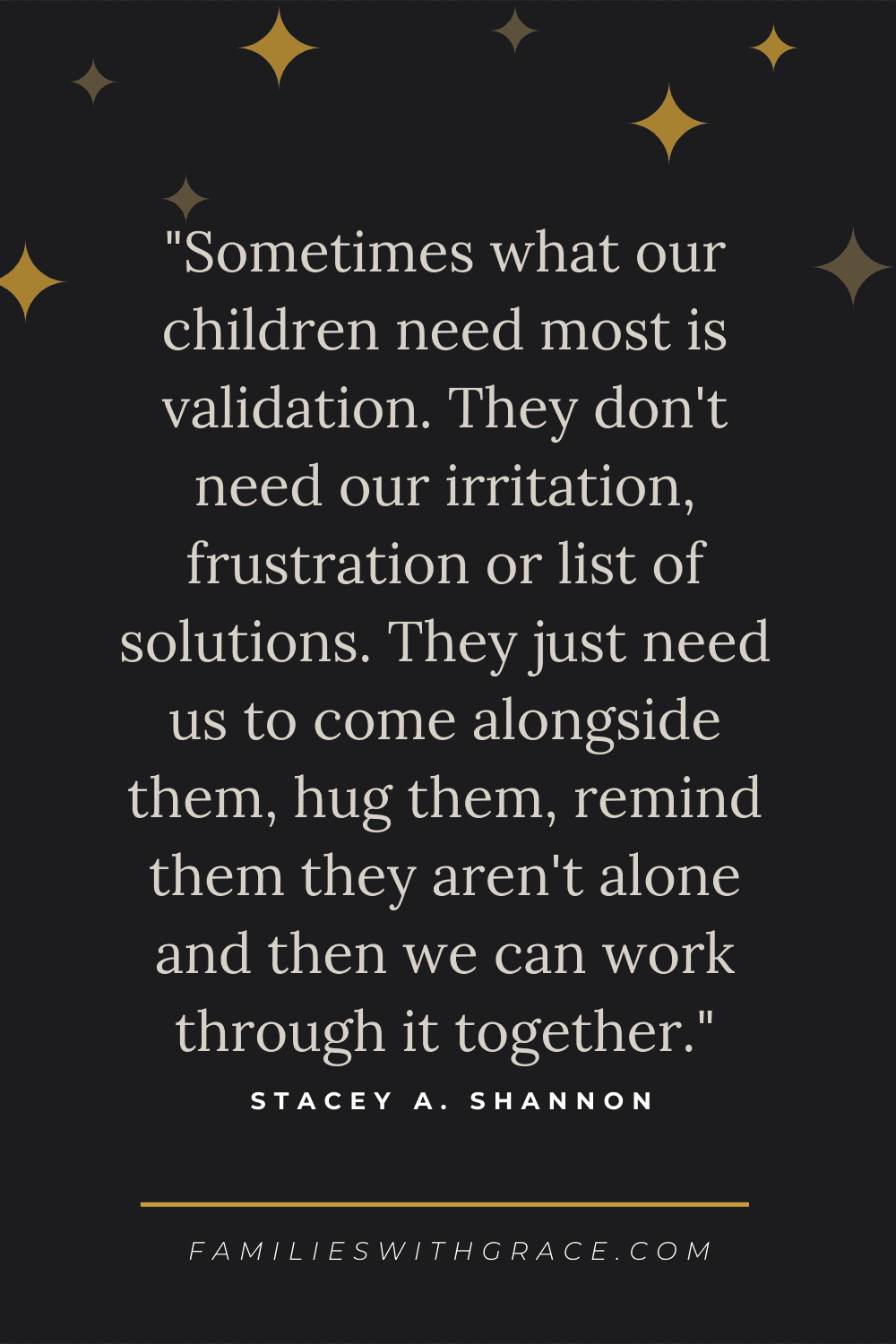Kids need to feel understood
Recently, I wrote an article for a publication about Social Security disability benefits for people who have the same bladder condition I do, interstitial cystitis. IC has no diagnostic test for it and is instead a diagnosis of elimination. While we have made much progress through the years, some patients are still told their symptoms are all in their heads.

Each patient I interviewed who had received disability benefits — whether it took one year or eight years — said their approval for disability brought them great relief and great validation. In fact, feeling validated was almost as thrilling for them as finding out their financial concerns were going to be improving.
Why validation matters
Validation is so incredibly important. I think it’s something that we often overlook both for ourselves and for our kids. Sometimes we don’t need someone to come along and fix our problems. We just need someone to listen, understand and say, “I see you are suffering, and I’m sorry.”
I have felt that way so many times. I even tell my husband sometimes when I don’t need him to fix a problem and just need him to listen.
I’ve not thought about validation as much when it comes to my children. I suppose that’s because validation doesn’t matter so much when they are babies and toddlers. It’s a bit complex. As they get older, though, it comes up.
Validating kids’ emotions
Over the weekend, my daughter had something she wanted to do that didn’t work out through no fault of hers or anyone else. She felt frustrated, disappointed and tearful. What she was upset about seemed a bit trivial to me, because I have three decades of life on her that give me more perspective.
But, it was a big deal to her. And I realized how thankful I am that at 9 years old, my daughter hasn’t had experiences to give her a different perspective. She hasn’t dealt with great adversity or struggle. I am thankful for that blessing.
As I heard her crying, I debated about how to react. Should I comfort her? Should I leave her be? What did my mom do? What would help her most? I decided to trust my mama instinct, which said to go to her and comfort her. So that’s what I did.
It didn’t take much. I gave her a hug and commiserated with her about how disappointing the situation was. I validated her struggle and feelings. That’s what she most needed. Then I gently guided her through looking for a solution to the problem.
Moving from validation to proactivity
I don’t want her to get so caught up in her emotions that she can’t move forward to fix problems. Obviously that wouldn’t serve her well in life. But, I knew without validation for her feelings that she wouldn’t be able to move forward and find a solution.

She was able to continue with her day. My daughter shed a few more tears and then moved on. She felt understood, which mattered most to her. It matters to all of us. When we are going through a difficult time, we just want to be seen and acknowledged for our struggle.
Adults need validation, too
A couple of years ago, I dealt with an ongoing situation that greatly affected me, yet I wasn’t able to tell anyone about. I remember a good friend whose response in finding out about it later was, “You must have felt so alone.” Her response still touches my heart, because I was validated. I felt seen and heard in the midst of my struggle.
That’s all our kiddos need sometimes, too. It’s human nature. And it’s something I’m going to strive to remind myself the next time one of my kiddos has a breakdown over something that seems small to me.
My children don’t need my irritation, frustration or list of solutions. They just need me to come alongside them, hug them, remind them they aren’t alone and then we can work through it together. I pray also that doing this with small issues in their childhood will lead them to coming to me with bigger, more serious issues as they grow.




